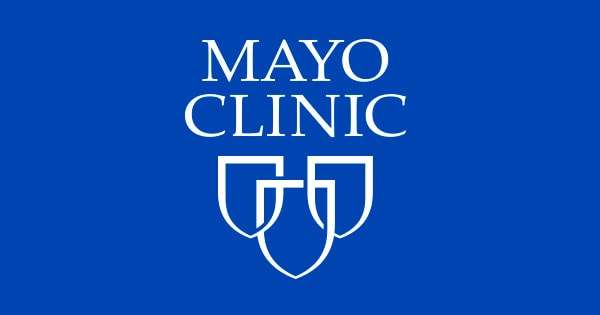Dialectical behavioral therapy (DBT) may improve symptoms of borderline personality disorder (BPD) by teaching skills that include mindfulness and emotion regulation.

Share on Pinterest
Maskot / Getty Images
Marked by difficulties with emotional regulation, interpersonal relationships, self-image, thoughts of suicide, and other symptoms, living with borderline personality disorder (BPD) isn’t always easy. However, it’s possible to live a happy, fulfilling life with the right kind of treatment and support.
Research shows that the prognosis for BPD is good, especially for those who seek treatment through specialized therapy. The most popular and most effective form of therapy for BPD is dialectical behavioral therapy (DBT). This form of therapy was created for people with borderline personality disorder in mind.
If you’ve been diagnosed with BPD, know that you’re not alone. In fact, it’s estimated that about 1.6% of U.S. adults are affected by this condition.
How does DBT help those with BPD?
Since those with BPD often experience black-and-white thinking, one of the foundations of DBT is literally within its name: dialectics.
Dialectics is defined as holding two seemingly opposite ideas at one time, considering both to be truths. In DBT, “dialectical” refers to the idea of needing both acceptance and change to help improve symptoms. This can bring greater balance and reduce black-and-white patterns of thought.
The other foundation of DBT is mindfulness. Through mindfulness, those living with BPD can learn to make more intentional, conscious decisions and decrease impulsivity and other unhelpful or potentially harmful behaviors over time.
One mindset taught during mindfulness is “wise mind,” which encourages dialectical thinking in crisis and normalcy. It also helps you to attend to your emotions and reason to make wise and balanced decisions.
Ultimately, DBT helps those with BPD both function and flourish in their everyday lives.
What does research say about DBT?
Research has shown DBT to be the most effective form of treatment for those with BPD. In fact, one study found that after the first year of treatment, 77% of participants no longer met the diagnostic criteria of BPD.
DBT is particularly effective for improving:
- suicidal thoughts and behaviors
- difficulties with anger management
- overall daily functioning, including socially
BPD symptoms such as chronic feelings of emptiness, difficulties with personal relationships, and an intense fear of abandonment tend to be more difficult to treat with DBT — but not impossible.
It’s important to remember that BPD doesn’t look the same for everyone. Different people may have different symptoms, and though DBT may help many people with the condition, it may not work for everyone.
What if DBT doesn’t help?
If you feel as if DBT isn’t helping you, there are many other options you can discuss with your treatment team, including:
- Mentalization-based therapy (MBT). MBT helps people with BPD identify and understand their own and others’ actions, feelings, and thoughts.
- Transference-focused therapy (TFP). In TFP, your therapist allows you to “transfer” thoughts or feelings you may have about another person onto them, which may allow them to understand your symptoms better. In collaboration, you can work out ways to change behaviors or negative thinking that your BPD may cause.
- Good psychiatric management (GPM). GPM teaches you problem-solving and stress-management strategies to help with life difficulties and to better understand yourself.
- Schema-focused therapy (SFT). SFT helps people with BPD change negative patterns of thoughts, behavior, and emotions, which are known as “schemas.”
At times, short-term hospitalizations may be necessary. This is particularly true in times of extreme stress and when you experience suicidal or impulsive behaviors.
Currently, there is no medication specifically for BPD. Some people with co-occurring conditions such as anxiety or depression may benefit from taking antidepressants. Your doctor can help you figure out whether medication may be beneficial in your case.
Are you in a crisis or considering suicide?
If you’re having thoughts of suicide or self-harm, you can access free support right away with these resources:
- The National Suicide Prevention Lifeline. Call the Lifeline at 800-273-8255, 24 hours a day, 7 days a week.
- The Crisis Text Line. Text HOME to the Crisis Text Line at 741741.
- The Trevor Project. LGBTQIA+ and under 25 years old? Call 866-488-7386, text START to 678678, or chat online 24-7.
- Veterans Crisis Line. Call 800-273-8255, text 838255, or chat online 24-7.
- Befrienders Worldwide. This international crisis helpline network can help you find a local helpline.
Next steps
Overall, dialectical behavior therapy (DBT) has been shown to be the most effective form of treatment for people with borderline personality disorder (BPD), especially if you experience thoughts of suicide or self-harm or want to reduce anger. It also helps with social skills and overall quality of life.
If you think DBT may be right for you, finding a qualified and experienced therapist in your area is crucial.
The National Education Alliance for Borderline Personality Disorder offers helpful tips when searching for a suitable therapist.
Plus, the Borderline Personality Disorder Resource Center maintains a database of healthcare professionals in the United States who have experience treating BPD. You can call them at 1-888-694-2273 or send them an email at [email protected].
Though living with BPD can be challenging at times, try to keep in mind that you’re not alone and that you can get better with the right treatment and support.
For family members and friends
If someone you care about has been diagnosed with BPD, and you’re interested in learning more about the condition and how to be a supportive ally, the National Education Alliance for Borderline Personality Disorder offers the Family Connections Program, a free 12-class course in which you learn about:
- BPD and its treatment
- DBT-based relationship skills
- how to take care of yourself
- how to communicate effectively
Keep in mind that the current wait time is 5–6 months, and you have to be 18 years or older to participate.
Dialectical behavior therapy (DBT), developed by Marsha Linehan, Ph.D., at the University of Washington, is a type of psychotherapy, sometimes called “talk therapy,” used to treat borderline personality disorder (BPD). DBT is a form of cognitive behavioral therapy (CBT), meaning it’s a therapy that focuses on the role of cognition, which refers to thoughts and beliefs, and behavior, or actions, in the development and treatment of BPD.
DBT includes some changes to the traditional cognitive-behavioral elements of therapy. These changes are intended to specifically help reduce the symptoms of BPD.
Research Support
DBT was the first psychotherapy shown to be effective in treating BPD in controlled clinical trials, the most rigorous type of clinical research. DBT is considered the “gold standard” first-line treatment for borderline personality disorder.
While DBT is no longer the only therapy to have shown effectiveness in controlled trials, it has grown a large evidence base and is considered one of the best treatments for BPD in terms of documented success rates.
Research suggests that DBT is effective in reducing psychiatric hospitalization, substance use, and suicidal behavior. Participants in the study also had significant reductions in hospital stays, self-injurious behaviors, and the severity of borderline symptoms.
Theoretical Basis
DBT is based on Dr. Linehan’s theory that the core problem in BPD is emotion dysregulation, which results from mixing biology, including genetic and other biological risk factors, and an emotionally unstable childhood environment, for instance where caregivers punish, trivialize, or respond erratically to the child’s expression of emotion, together.
The focus of DBT is on helping the client learn and apply skills that will decrease emotion dysregulation and unhealthy attempts to cope with strong emotions.
What to Expect
Usually, DBT includes a combination of group skills training, individual psychotherapy, and phone coaching, although there are exceptions. Patients in DBT are asked to monitor their symptoms and use of learned skills daily while their progress is tracked throughout therapy.
There are four main types of skills that are covered in DBT skills training. These are:
Mindfulness Meditation Skills
Mindfulness meditation skills are focused on being fully in the present. These skills center on learning to observe, describe, and participate in all experiences, including thoughts, sensations, emotions, and things happening externally in the environment, without judging these experiences as “good” or “bad.” These are considered core skills that are necessary in order to implement other DBT skills successfully.
For example, people with BPD may find themselves overwhelmed with emotions during an argument and may then act out on those feelings without considering the consequences. Mindfulness skills help people learn how to interpret and regulate these emotions, allowing them to step back and respond more appropriately.
Interpersonal Effectiveness Skills
The focus of this skill module is on learning to successfully assert your needs and to manage conflict in relationships.
Distress Tolerance Skills
The distress tolerance skills module promotes learning ways to accept and tolerate distress without doing anything that will make the distress worse in the long run, for instance, engaging in self-harm.
If you are having suicidal thoughts, contact the National Suicide Prevention Lifeline at 988 for support and assistance from a trained counselor. If you or a loved one are in immediate danger, call 911.
For more mental health resources, see our National Helpline Database.
When faced with strong emotion, a person with BPD may engage in impulsive or risky behaviors in order to escape what feels like an intolerable feeling. Substance use, violence, excessive alcohol use, and other risky actions are just a few examples of behaviors someone might engage in to temporarily feel better. The problem is that these behaviors make things worse in the long-term. Distress tolerance skills allow people to learn how to better cope with such emotions and respond in ways that are more adaptive.
Emotion Regulation Skills
In this module, patients learn to identify and manage emotional reactions. Regulating emotions involves enhancing or reducing emotions in order to respond effectively and achieve individual goals. Gaining these emotional skills allows people with BPD to better interpret their emotions and find ways to manage and express them in ways that are healthy and non-destructive. Examples of skills a person might work on include learning how to accept emotions, changing behaviors in order to change the situation, or finding ways to deal with the emotion without lashing out.
Effectiveness
DBT is not a cure for borderline personality disorder, but it can be very effective for reducing or managing symptoms of the condition. One study found that 77% of people no longer met the criteria for BPD after a year of treatment with dialectical behavior therapy.
Getting Help
If you are interested in learning more about DBT, there are a number of resources available on the Behavioral Tech website. Visit the resources page to learn more about the basics of DBT and Dr. Linehan. The clinical resources directory can help you find DBT providers in your area.
Alternatively, you can ask your therapist, physician, or other mental health professionals for a referral to someone who specializes in DBT.
The Difference Between DBT and Didactic Therapy
Didactic therapy is a group therapy most often used for those with substance use disorders to teach them the facts and help educate them, while DBT is typically for use in the treatment of borderline personality disorder.




